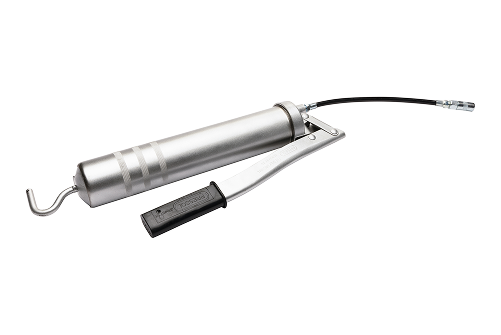Industrial lubrication refers to the use of oils, greases, and other lubricating substances to reduce friction between moving parts in machinery and equipment. The primary goal of lubrication is to minimize wear and tear, prevent overheating, and ensure smooth, efficient operation of machines. Proper lubrication is vital for the longevity of industrial equipment and the overall efficiency of machinery used in manufacturing, production, and various industrial processes.
Why is Lubrication Important in Industry?
Lubrication plays several crucial roles in industrial machinery and systems:
-
Reducing Friction: Lubricants form a thin film between moving parts, reducing direct contact between surfaces. This reduces friction, which would otherwise cause excessive heat, wear, and energy loss.
-
Cooling: Lubricants help dissipate heat generated by friction, preventing overheating and ensuring that components operate within safe temperature ranges.
-
Preventing Wear: By reducing friction and preventing direct contact between moving parts, lubricants prevent premature wear and tear on mechanical components, extending their lifespan.
-
Sealing: Lubricants can also act as a seal, preventing contaminants such as dust, water, and dirt from entering sensitive parts of machinery.
-
Corrosion Protection: Many lubricants contain additives that protect metal parts from rust and corrosion, especially in humid or harsh environments.
-
Energy Efficiency: Reduced friction means that machines run more efficiently, using less energy and contributing to lower operating costs.
Types of Industrial Lubricants
There are various types of industrial lubricants, each designed for specific applications and machinery needs. The main categories of lubricants are oils and greases, though there are other specialized lubricants as well.
-
Oils (Lubricating Oils):
-
Purpose: Oils are liquid lubricants primarily used to reduce friction, cool, and clean moving parts. They are widely used in engines, gears, pumps, turbines, and other machinery.
-
Types of Oils:
-
Mineral Oils: Derived from petroleum, these oils are the most common and are used in a wide range of applications, including automotive and industrial machinery.
-
Synthetic Oils: These oils are artificially made and offer superior performance in extreme conditions, such as high or low temperatures. Synthetic oils are often used in high-performance engines, turbines, and machinery that require consistent performance under demanding conditions.
-
Vegetable Oils: A more environmentally friendly option, vegetable oils are made from plant-based materials and are used in certain machinery and applications where non-toxic, biodegradable options are preferred.
-
Gear Oils: Specially formulated oils for use in gearboxes and differential units, designed to handle high pressures and loads.
-
-
-
Greases:
-
Purpose: Grease is a semi-solid lubricant, typically composed of oil combined with a thickening agent (like lithium or calcium). Greases are ideal for applications where oil would be too runny or would leak out of machinery. Grease stays in place longer and is used in bearings, gears, and other components where consistent lubrication is required over time.
-
Types of Greases:
-
Lithium Grease: One of the most common types of grease, lithium grease offers good water resistance, high-temperature stability, and excellent performance in most general industrial applications.
-
Calcium Grease: Known for its water resistance, calcium grease is often used in applications where moisture is present, such as in marine and outdoor machinery.
-
Polyurea Grease: A high-performance grease often used in high-speed or heavy-load applications, such as in electric motors or automotive bearings.
-
Aluminum Complex Grease: Known for its ability to perform in high-temperature conditions, this type of grease is used in industrial machinery that operates at elevated temperatures.
-
-
-
Dry Lubricants:
-
Purpose: Dry lubricants are typically used in applications where liquid oils or greases might be inappropriate due to environmental concerns (like dirt or moisture) or high temperatures. Dry lubricants reduce friction through solid particles that provide a lubricating effect.
-
Examples: Graphite, molybdenum disulfide (MoS2), and PTFE (Teflon) are common dry lubricants used in industries where traditional oils and greases would break down or attract contaminants.
-
-
Solid Lubricants:
-
Purpose: Solid lubricants are used in extreme conditions, such as in very high temperatures or vacuum environments where liquids are ineffective. They can be applied as coatings or incorporated into composite materials.
-
Examples: Graphite, molybdenum disulfide (MoS2), and ceramic-based lubricants are often used in high-temperature applications, such as in aerospace and manufacturing processes involving intense heat.
-
-
Chain Oils and Lubes:
-
Purpose: These oils are specially formulated to lubricate chains, often found in conveyor systems, overhead hoists, or industrial chains in manufacturing processes.
-
Properties: Chain oils typically include additives for high-load conditions, rust protection, and resistance to contaminants such as dust or moisture.
-
Applications of Industrial Lubrication
Lubrication is essential in a wide range of industries and applications. Some of the most common include:
-
Manufacturing Equipment:
-
Industrial machines, such as CNC machines, presses, and conveyors, require lubrication to keep parts moving smoothly, reduce friction, and avoid overheating.
-
-
Automotive and Heavy Equipment:
-
Engines, gearboxes, axles, and transmission systems in vehicles and construction machinery rely on oil and grease to operate efficiently and reduce wear.
-
-
Pumps and Compressors:
-
Lubrication is critical in pump systems and compressors, helping to prevent corrosion and wear on moving parts while maintaining optimal performance.
-
-
Steel and Mining Industries:
-
Industrial lubricants are used in machinery like crushers, conveyors, and mills, where heavy loads and high-pressure operations require robust lubricating solutions.
-
-
Food and Beverage Manufacturing:
-
In food processing plants, food-safe lubricants are essential for machinery like mixers, conveyors, and packaging equipment, where hygiene standards are critical.
-
-
Power Generation:
-
Industrial lubrication plays a key role in turbines, engines, and other power generation equipment, where efficient and reliable operation is vital.
-
Choosing the Right Lubricant
Choosing the right lubricant for industrial applications involves considering factors like:
-
Operating Temperature: Some lubricants are better suited to high or low temperatures.
-
Load and Speed: The type of lubricant required will depend on the load and speed of the moving parts.
-
Environmental Conditions: Consideration for exposure to water, dust, and corrosive elements.
-
Viscosity: The thickness of the lubricant affects how well it can withstand friction and pressure.
-
Additives: Special additives can enhance the properties of the lubricant, such as corrosion resistance, anti-wear, or extreme pressure protection.
Maintaining Lubrication Systems
Regular maintenance is essential to ensure optimal performance and prevent premature wear:
-
Regular Oil and Grease Checks: Monitoring oil and grease levels ensures proper lubrication and helps identify any issues before they become serious.
-
Filtration: Keeping lubricants clean by using filtration systems helps remove contaminants that could cause damage.
-
Proper Storage: Storing lubricants correctly prevents contamination and degradation.
-
Lubricant Replacement: Over time, lubricants can break down. Replacing old lubricant with fresh oil or grease is critical for ensuring the machinery continues to perform well.
At RR Fisher, we offer a wide range of industrial lubricants tailored for various machinery and applications. Whether you're looking for oils, greases, or other lubrication solutions, our team can help you select the right products for your specific needs to keep your equipment running efficiently and reliably. RR Fisher stocks the SuperLube and Toyo brands.

